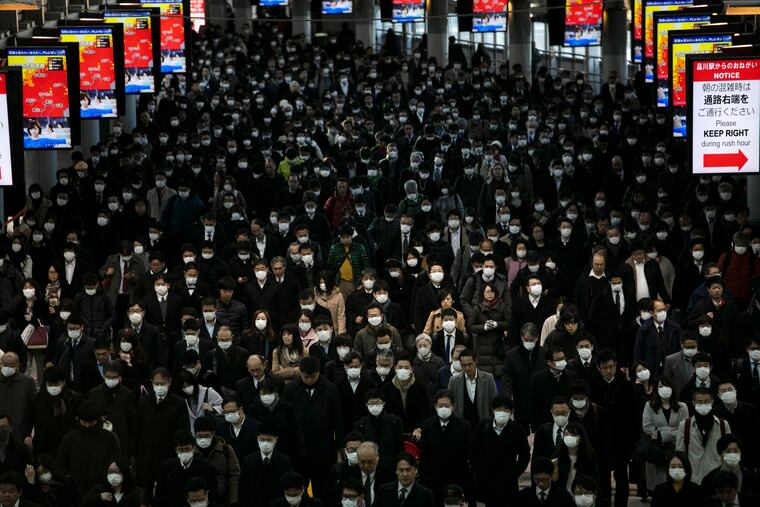Will coronavirus trigger a U.S. recession? Maybe, but it won’t be like 2008 | Opinion
As the coronavirus spreads across the globe, the likelihood is that the U.S., if not the entire world economy, will wind up in downturn, says economist Joel Naroff.

As the coronavirus spreads across the globe, the likelihood is that the U.S., if not the entire world economy, will wind up in downturn.
Is a recession inevitable? No, but there is little that can be done to prevent it. However, if there is a recession, the pathway out of it could be much easier and faster than what we experienced after the Great Recession.
Because this is a new virus, there is no vaccine and it could take a year or more before one is widely available. And since you cannot wall it out, the virus is going to spread. As the Centers for Disease Control and Prevention said, “It’s not so much a question of if this will happen anymore, but rather more a question of exactly when this will happen and how many people in this country will have severe illness.”
The reason we are facing this situation is simple: We now live in a global village. We are interconnected and what happens somewhere else doesn’t stay there.
We are not just joined by high-speed communications. Goods and people travel largely unimpeded around the globe. With a virus that spreads before symptoms appear, even a total quarantine might not stop it because we don’t know whether it would stay dormant, only to be revived once the quarantines were lifted.
Thus, we have to accept the distinct possibility that a virus that has reached the United States will spread across the country.
It is the reaction to the epidemic that would create the economic problems.
If other countries are any example, significant restrictions on production, consumption, travel and general business and social activities will be implemented. With the U.S. economy already having slowed for the three quarters before the virus hit, these actions could restrain growth enough to cause the longest expansion on record to end.
If we cannot stop the virus, can government actions forestall a recession? Doubtful.
Investors and politicians were screaming for the Federal Reserve to cut rates and it did that this week. The Fed made an emergency rate reduction of one-half percent.
Will it affect the economy? It’s doubtful.
You cannot fight a virus with interest rates. Lower rates don’t stop the virus from spreading, so how a cut reduces the economic impact is unclear.
Think of it this way: If the ultimate impact of the epidemic is unclear, will businesses really expand investment in an economy that is decelerating simply because of lower rates? No. Will lower loan rates induce households to purchase more vehicles or homes in an economy where growth was weakening and the labor market softening? No, again.
In other words, the Fed rate cut will have little or no impact on the real economy.
So, why did the Fed make the surprising move? As we saw in 2019, rate reductions bolster investor confidence, even if they do little to boost economic growth. The Fed cut rates to provide the image that it is doing something.
What about government spending? That could help, though it would explode the already trillion-dollar deficit. Regardless, to deal with the surging medical issues, health-care spending will have to rise sharply. We need to prepare and support the medical sector so it can handle the added demand for supplies and services.
The longer-term outlook, though, is more upbeat, even if there is a real possibility of a recession. This time, the pathway out of the downturn should be different.
The Great Recession was caused by the housing bubble bursting, taking down an irresponsible finance sector. Before growth could return to normal, the housing and finance segments of the economy had to regain their health. Given the extensive damage they suffered, the recovery took a long time.
In contrast, a virus-induced recession would not have been created by a collapse of a critical sector. Thus, the impact could be reversed relatively quickly. That was the pattern after most recessions, where growth accelerated sharply soon after the downturn ended.
Once the virus is brought under control, people will shop, eat out, travel, and begin living their lives normally. Businesses should rebound relatively quickly as demand is revived. Similar upturns would happen across the world and a global recovery would accelerate domestic growth.
Because we don’t know how widely the coronavirus will spread, a recession is hardly certain. But the virus is already here, so we can assume it will have a negative impact on growth and the longer it lasts, the greater the probability of an economic downturn.
What we can do now is plan for the aftermath. And there is every reason to expect that as long as the health scare is not excessively long, the recovery would be quick and strong.